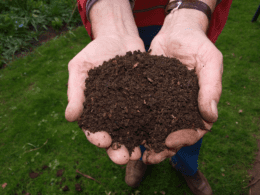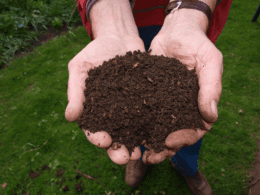Are you looking for a cost-effective way to enhance the look and vitality of your garden? Look no further than the power of wood chips! These chips, which can be easily obtained from a chipper, offer a wide range of uses for gardeners of all levels.
From mulch to walkways to compost, the possibilities for repurposing this material are endless. However, it’s important to weigh the potential benefits and drawbacks before utilizing wood chips in your garden. While they can provide a natural and attractive ground cover, they can also lead to nitrogen deficiency and the growth of fungal spores.
With careful consideration and creativity, you can tap into the wonders of wood chips to create a beautiful, thriving garden that is both budget-friendly and environmentally sustainable.
Quick Takeaways
- Wood chips are a cost-effective and practical material for enhancing gardens, regulating soil temperature, retaining moisture, suppressing weeds, and building up low areas.
- Obtaining wood chips is easy and budget-friendly through renting a chipper, pruning shrubs and trees, or getting them for free from tree service companies and municipalities.
- However, improper use of wood chips may cause nitrogen deficiency, fungal spores, and grass killing, which should be monitored for potential drawbacks.
- By following proper chipper safety precautions and being creative, wood chips can be used in a wide range of ways to create a beautiful and thriving garden that is environmentally sustainable.
How Can Worm Composting Benefit My Garden?
Worm composters for eco-friendly recycling can bring remarkable benefits to your garden. By using these composting systems, you can recycle kitchen scraps and organic waste, converting them into nutrient-rich worm castings. This organic fertilizer improves soil structure, promotes healthy plant growth, and enhances moisture retention. Embracing worm composting can be a sustainable and effective way to nourish your garden while minimizing waste.
Uses in Gardening
You can revamp your garden with wood chip wonders by using them for a variety of creative applications and DIY projects. Wood chips are a budget-friendly solution to many garden problems and can add beauty to your outdoor space. However, be mindful of their potential drawbacks such as nitrogen deficiency, fungal spores, splinters, slowed composting process, and killing off grass in dense layers.
One of the most common uses for wood chips in gardening is as mulch. It regulates soil temperature, retains moisture, and suppresses weeds. Additionally, wood chips can be used to create natural-looking walkways, add carbon and nutrients to compost, build up low areas for erosion control, and form deep barriers to control invasive plant growth.
Just be sure to top off walkways and weed control barriers each year and monitor for potential drawbacks.
Obtaining Wood Chips
Obtaining wood chips is a simple process that involves pruning shrubs and trees with a chipper. To ensure the safety of the user, it’s important to follow proper chipper safety precautions.
Here are some sourcing methods to obtain wood chips:
-
Rent a chipper: Renting a chipper is a budget-friendly option for obtaining wood chips. This allows you to easily prune shrubs and trees on your property and turn the waste into wood chips.
-
Contact a tree service company: Tree service companies often have wood chips that they need to dispose of and are willing to give them away for free. Contacting a tree service company is a great way to obtain large quantities of wood chips for your gardening needs.
-
Check with local government: Some cities and municipalities have programs that provide residents with wood chips for free. Check with your local government to see if they offer this service and how to obtain the wood chips safely.
By following these sourcing methods and chipper safety precautions, you can obtain wood chips for your garden without breaking the bank or compromising your safety.
Benefits and Drawbacks
When considering the use of wood chips in your gardening endeavors, it’s important to weigh the benefits and drawbacks of this material.
On the positive side, wood chips are an affordable and readily available material that can be used in a variety of practical applications. They can be used as mulch to regulate soil temperature, retain moisture, and suppress weeds. Additionally, wood chips can be used to create natural-looking walkways or for erosion control.
However, there are also some drawbacks to using wood chips in your garden. One potential issue is that they may cause nitrogen deficiency and fungal spores, which can harm your plants. Additionally, wood chips may slow down the composting process if used improperly.
Before using wood chips, it’s important to consider these pros and cons and determine if they are the right material for your specific gardening needs.
Frequently Asked Questions
How do I properly store wood chips before using them in my garden?
To properly store wood chips for your garden, you should keep them in a dry, covered area to prevent moisture buildup. Make sure to turn the pile occasionally to ensure even moisture control.
Can I use wood chips from treated lumber in my garden?
Avoid using wood chips from treated lumber in your garden. These chips may contain toxic chemicals that could harm your plants and soil. Instead, try alternatives such as untreated wood chips, straw, or leaves for safe and effective garden mulch.
Are there any types of plants that should not be mulched with wood chips?
Some plants may not be compatible with wood chip mulch, such as those that prefer acidic soil. Consider alternative options like straw or grass clippings for these plants to ensure their optimal growth.
How often should I add fresh wood chips to my garden?
To benefit your garden, add fresh wood chips annually for weed control and moisture retention. Incorporate wood chips into your landscaping design by mulching or creating walkways. Be cautious of nitrogen deficiency and fungal spores.
Can wood chips attract pests to my garden?
Yes, wood chips can attract pests to your garden if not properly managed. To avoid this, consider using pest control methods like natural predators or using alternative mulch options such as straw or leaves.









